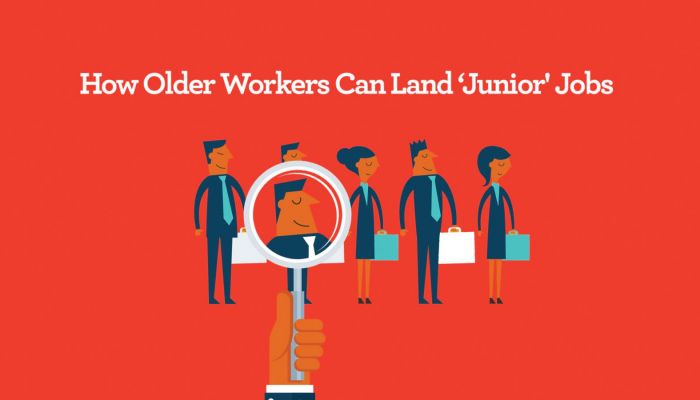It’s not uncommon for older job seekers to get discouraged by the phrase “junior.” The word itself conjures up associations with youth, and many people mistakenly believe that companies searching for a “junior legal secretary” or “junior manager” are looking for young people to fill these roles.
Is this a form of age discrimination? Not quite.
While some of the ads for a junior-level position you encounter might ask for five years or more of experience, the “junior” doesn’t have so much to do with age as it does with pay scale.
When the ad says ‘junior’ they are giving you an indication of the salary they are willing to pay. Generally speaking, those who are older also earn more. Older workers have to determine whether their salaries are keeping them out of work.
It’s important to avoid confusing age discrimination with salary bias.
Salary discrimination is not the same as age discrimination. If salary seems to be getting in the way of finding employment, job hunters can change the salaries they demand.
One way to approach these positions is to allay prospective employers’ fears that you’ll take off when a higher-paying job opens up. You have to reassure them you really want the job.
If you’re willing to work at a “junior” salary, make a pitch along these lines: “I have X number of years of experience, and I want to work for you because your firm has a good reputation. I know that in the long run I’ll be treated fairly because of what I bring to the party. I want to work forever (another possible concern when hiring an older person), and I’d love this place to be my new career. If you hire me, you will get not only someone with years of experience, but someone who can mentor some of the younger people. I hope you’ll choose to have someone with tremendous experience on your staff.”









